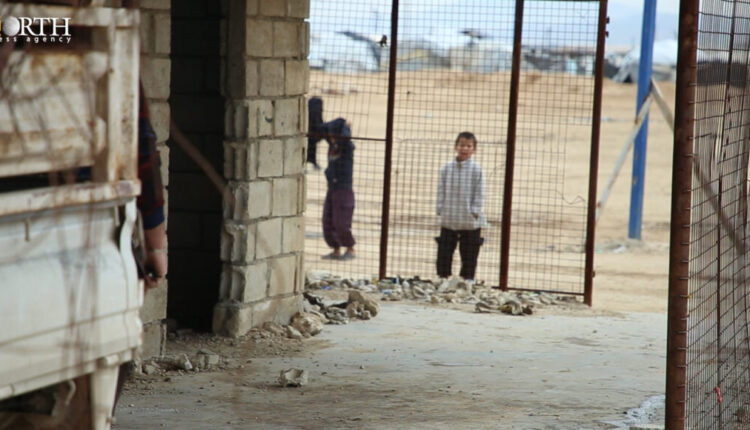
HASAKAH, Syria (North Press) – The Autonomous Administration of North and East Syria (AANES) says it is facing immense difficulties in rehabilitating Islamic State-linked children. The AANES has established specialized centers for these children, which use educational and psychological programs in order to pull them away from the Islamic State’s extremist ideology.
Even though many NGOs are operating in the region, education centers in the camp lack expertise and a proper foundation from which to teach these children.
Islamic State (ISIS) women continue to reject the idea of letting their children be taught in AANES schools, arguing that there is no future for them while they languish in Hawl camp, near Hasakah.
Moreover, ISIS families demand education for their children, stressing the necessity of having a degree, as schools present in the camp do not serve them, according to wives of ISIS militants.
An Iraqi refugee in Hawl camp told North Press under the condition of anonymity that “the atmosphere of the camp is not appropriate. Our children know nothing. We want them taught in schools. Most of them have not learned reading and writing yet.”
Commenting on the schools in the camp, she said, “There is no future for them.”
There are around 27,000 children in the camps and rehabilitation centers in northeast Syria. The AANES has worked to rehabilitate them. However, due to a lack of support from NGOs, constant threats to the region, and the extremist ideology instilled in the children, it has not yet been successful.
The AANES established two centers to rehabilitate ISIS children – Hori and Halat – but they lack staff specialized and experienced in child psychology.
Nearly a year ago, a secret tunnel was discovered at Hawl camp in which children were being taught ISIS’ extremist ideology after returning from AANES rehabilitation centers.
Multiple times, UNICEF has called on all relevant member states to take responsibility and urgent action for the sake of the children, and to repatriate them along with their mothers.
One wife of an ISIS militant from al-Qa’im governorate in Iraq, who lives in the camp, demanded to return to Iraq, saying, “Our children do not have a future if we stay in the camp.”
A refugee from Aleppo demanded to leave the camp. “We have been in the camp for five years. The children learn nothing but hate and resentment,” she said.
UNICEF has repeatedly warned that these children are at risk of turning into future ISIS militants if they remain in the extremist environment within the camp.
The camp’s administration said that frequent murders inside Hawl cause psychological disorders in the children and immensely affect the development of their personalities and future.
